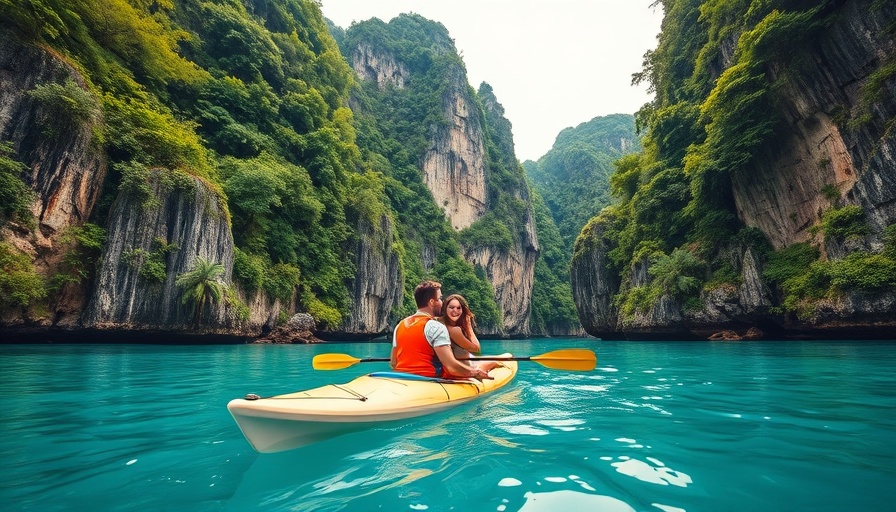
The Ecotourism Boom in the Philippines: A Pathway to Sustainable Living
The Philippines is witnessing an exciting transformation as lesser-known islands are poised to become hotbeds of ecotourism. With direct flights becoming more frequent and community-based initiatives gaining traction, these pristine paradises are taking a leap towards sustainability. Jose "Jojo" Mazo, a ranger at the Siete Pecados Marine Park, recalls how his hometown has shifted from illegal fishing to responsible tourism, benefiting both the environment and local livelihoods.
Community Involvement: A Key Element
Across the archipelago, community engagement is at the heart of many ecotourism endeavors. The case of Coron Island exemplifies this, where local fishermen have transitioned into park guides, directly linking tourism success to conservation efforts. This transformation fosters a deeper respect for their environment, as community members recognize that their economic well-being is intertwined with sustainable practices.
Connecting Travelers With Nature
Ecotourism encourages awareness and appreciation of the rich biodiversity found in Philippines’ waters. Places like the Tubbataha Reefs serve as prime examples, drawing visitors not just for their beauty, but also to promote educational experiences about marine conservation. Through responsible tourism, locals experience increased income from shared profits, leading to a sustainable balance between economic growth and environmental stewardship.
Challenges Ahead: Avoiding Overtourism
As the demand for these under-the-radar islands grows, there is a palpable concern about overtourism. Previous instances, such as the turmoil faced by Boracay Island, highlight the importance of managing tourist numbers to prevent environmental degradation. The key takeaway is that preserving these natural wonders requires intentional planning and education amongst tourists about responsible practices.
Green Innovations in Tourism Infrastructure
The Philippine government is actively pursuing greener initiatives. New airport constructions and updates to tourism infrastructure are integrating renewable energy solutions, such as solar power, reducing carbon footprints while enhancing visitor services. These improvements are vital not only for accommodating increased tourist traffic but also for ensuring a sustainable experience for both visitors and locals.
Key Principles of Ecotourism in Action
Effective ecotourism relies on several principles, such as community engagement, environmental preservation, and education. As local governments implement strict guidelines for sustainable practices, visitors are encouraged to participate in conservation efforts—one way being the promotion of clean-up events that engage both tourists and residents.
Moving Towards a Sustainable Future
With growing awareness and demand for eco-friendly options among millennials and Gen Zs—who prioritize sustainability—this shift toward ecotourism in the Philippines represents a significant opportunity. By reimagining tourism to align with conservation, the country can foster a more responsible and sustainable travel narrative, benefiting both its ecology and its people.
As we explore travel options, let’s encourage eco-friendly practices and make conscious choices that support sustainability. Prioritizing local engagement, sustainable tourism practices, and environmental education can ensure that the beauty of the Philippines is preserved for generations to come.
 Add Row
Add Row  Add
Add 



Write A Comment